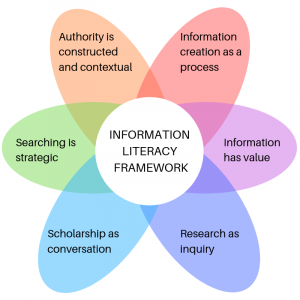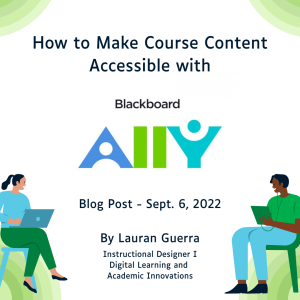Onward! This week we’re talking about the Information Literacy Frame Research as Inquiry. Inquiry is another word for curiosity or questioning. I like to think of this frame as Research as Curiosity, because I think it more accurately captures the way our adorable human brains work.
Inquiring Minds Want to Know
When you think to yourself, “How old is Madonna?” and you Google it to find out she’s 60 (as of the creation of this post), that’s research! You had a question (how old is Madonna?), you applied a search strategy (googling “Madonna age”) and you found an answer (60). That’s it! That’s all research has to be!
But it’s not all research can be. This example, like most research, is comprised of the same components we use in more complex situations. Those components are: a question then an answer—inquiry and then research—“How old is Madonna?” and “60”. But when we’re curious, we go back to the inquiry step again and ask more questions and seek more answers. We’re never really done, even when we’ve answered the initial question and written the paper and given the presentation. If it’s something we are really curious about, we’ll keep asking and answering and asking again.

If you’re really curious about Madonna, you don’t just think, “How old is Madonna?” You think “How old is Madonna? Wait, really? Her skin looks amazing! What’s her skincare routine? Seriously, what year was she born? Oh my god, she wrote children’s books! Does our library have any?” Your questions lead you to answers which, when you’re really interested in a topic, lead you to more and more questions. Humans are naturally curious, we have this sort of instinct to be like, “huh, I wonder why that is?” and it’s propelled us to learn things and try things and fail and try again! It’s all Research as Inquiry.
And to satisfy your curiosity, yes, we do own one of Madonna’s children’s books. It’s called The Adventures of Abdi and you can find it in our Juvenile Collection on the second floor at PZ8 M26 Adv 2004. And you can find a description of her skincare routine. You’re welcome.
Identifying an Information Need
One of the tricky parts of Research as Inquiry is determining a situation’s information need. It sounds simple to ask yourself, “What information do I need?” and sometimes we do it unconsciously. But it’s not always easy. Here are a few examples of information needs:
- You need to know what your niece’s favorite Paw Patrol character is so you can buy her a birthday present. Your research is texting your sister. She says, “Everest.” And now you’re done. You buy the present, you’re golden. Your information need was a short answer based on a 3 year old’s opinion.
- You’re trying to convince someone on Twitter that Nazis are bad. You compile a list of opinion pieces from credible news publications like the Wall Street Journal and the New York Times, gather first-hand narratives of Holocaust survivors and victims of hate crimes, find articles that debunk eugenics, etc. Your information need isn’t scholarly publications, it’s accessible news and testimonials. It’s articles a person might actually read in their free time, articles that aren’t too long and don’t require access to library materials.
- You need to write a literature review for an assignment, but you don’t know what a literature review is. So you Google “literature review example,” you find out what it is, how one is created, and maybe skim a few examples, take it to the library’s Quick Search box and try “oceanography literature review,” find some closer examples, and then you start conducting research for your own literature review. Your information need here is both broader and deeper. You need to learn what a literature review is, how one is compiled, and how one searches for relevant scholarly articles in that review.
Sometimes it helps to break down big information needs into smaller ones. Take the last example, for instance: you need to write a literature review. What are the smaller parts?
- Information Need 1: Find out what a literature review is.
- Information Need 2: Find out how people go about writing literature reviews.
- Information Need 3: Find relevant articles on your literature review’s subject.
It feels better to break it into smaller bits and accomplish those one at a time. And it highlights an important part of inquiry that’s surprisingly difficult to learn: ask questions. You can’t write a literature review if you don’t know what it is, so ask. You can’t write a literature review if you don’t know how to find articles, so ask. The quickest way to learn is to ask questions. Once you stop caring if you look stupid, and once you realize no one thinks poorly of people who ask questions, life gets a lot easier.
So let’s add this to our components of research: ask a question, determine what you need in order to thoroughly answer the question, and seek out your answers. Not too painful, and when you’re in love with whatever you’re researching, it might even be fun.
The Takeaways:
- When you have a question, ask.
- When you’re genuinely interested in something, keep asking questions and finding answers.
- When you have a task at hand, take a second to think realistically about the information you’ll need to accomplish that task. You don’t need a peer-reviewed article to find out if praying mantises eat their mates, but you might if you want to find out why.



